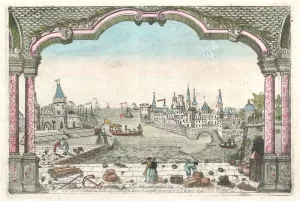As a college student at IE University, our terminology is particular to our environment and academic setting.
Thus, I gathered submissions of widely used words and phrases that are only utilized in the context of our university with a survey – more specifically, the Segovia campus.
The IEU students located in Segovia are said to be a much more tight-knit community than Madrid solely due to the campus style and size of the city. For this reason, students of this city attend the exact locations at the same times, over and over again.
In this article, we will look at the survey results and talk about the motivations behind the creation of this particular lexicon. Moreover, this language helps identify groups and promote communication and cultural narratives.
For various reasons, communities —like university students— develop their jargon or vocabulary.
Table of Contents
Why and How Jargon is Created
It first helps to build and strengthen their sense of group identity. Insider languages, such as slang and acronyms, can foster a feeling of exclusivity and belonging inside the group.
Second, it can be used to enhance and improve communication between students. Group members can easily communicate complicated thoughts and concepts without having to go into great detail every time by employing unique vocabulary. This can speed up the conversation and reduce effort.
Segovia’s Most Famous Establishments
Students submitted a variety of vocabulary. One of them was “Irish.”
It was the most proposed answer. Rather than using the common name for the establishment, Canavans Theatre, we refer to it as “Irish.” This is a distinct location for IE students Tuesday and Thursday nights, highlighting how our community has developed its unique culture and language.
It is also interesting to note how some jargon has been passed down through the generations. The current Segovia student body did not coin the term “Irish.”
The survey also revealed several examples of how common locations and establishments have been abbreviated within our university community. For instance, “Plaza Mayor de Segovia,” a central square in EVERY Spanish town or city, is commonly called “Plaza.”
At the same time, the “Juan Bravo – Fonda Ilustrada” located in this square has been shortened to “JB” in text messages and speech.
Another example is calling the Creativity Center (Real Casa de Moneda): CC, or
referring to student residences as “resi.”
Moreover, another respondee suggested using “around The Factory” for anything down Via Roma and the term “aqueduct” for anything around the landmark.
The Nature in Segovia
Another term that has developed its unique meaning within our university community is “the hills.” While this term refers to the various rolling mounds surrounding Segovia, it has also come to represent a social activity involving gathering with friends to enjoy the outdoors, usually listening to music played by a student DJ and sharing food and drinks.
When someone mentions that they are going to “the hills,” we imagine a group of students engaging in this social activity.
Similarly, words like “the lake” and “the river” has developed into meaning more than just picture-perfect nouns. This highlights how language can evolve beyond its literal meaning and become imbued with additional layers of cultural significance and social context within specific communities.
Design & Architecture Student Vocab
Another vocabulary specific to the architecture and design students also refers to an action more than just the location: “I am going to the Studio” or “crit.”
Denigrating Jargon
While the development of specialized vocabulary within our university community can serve as a way to build camaraderie and identity, it is essential to recognize that not everyone views these terms positively.
One respondent in the survey pointed out that the vocabulary used on campus can come across as unoriginal or shallow. While I don’t have an explanation of the statement, I believe it could be that these terms may exclude individuals unfamiliar with our community’s shared references and cultural context.
It might also be because our social experiences are often a central aspect of our university experience. Thus our shared vocabulary reflects this emphasis while not fostering an intellectual environment.
Jargon Summary
- Irish
- Plaza
- JB
- CC
- Resi
- Around The Factory
- Aqueduct
- The hills
- The lake / the river
- I am going to the studio
All in all, it is interesting to recognize the way small communities, such as that of IE University students in Segovia, subconsciously create their lexicons of jargon. And these, inherently, get passed through generations, alongside the new terms that get created too.






